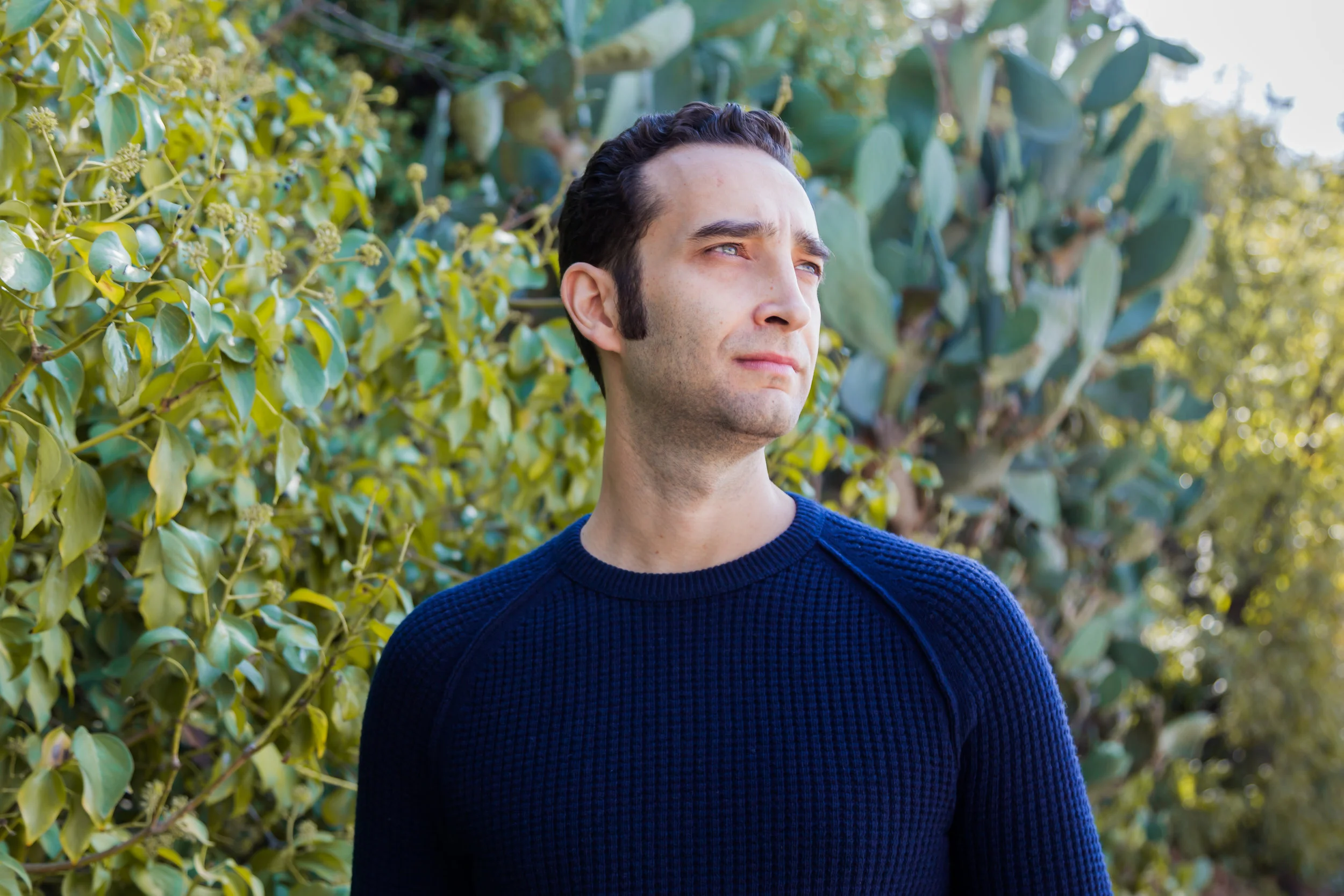BIO:
Auditorium is Spencer Berger. Berger began performing at the age of nine as a member of The Metropolitan Opera’s Children’s Chorus, singing onstage with such golden-throated legends as Luciano Pavarotti and Placido Domingo. His self-released 2011 debut album (Be Brave) and 2012 EP (Nights Worth Living) dropped jaws thanks to Berger's goosebump-inducing voice and his gift for crafting lush, genre-defying arrangements that framed his instant-earworm melodies. Now, Berger is returning with his second LP, The First Music — grand in scope (15 songs) yet tightly constructed (33 minutes), it pulls off a magic trick by unearthing beauty and hope in some of life's darkest, most harrowing corners.
Berger describes The First Music as “a hunt for answers to unanswerable questions.” While constructing it, Berger drew on a mix of personal tragedy (the death of a close friend), family history (many of his relatives were either imprisoned or killed during the Holocaust), vivid childhood memories, and current worldwide events. At the album’s core lurks a theme that Berger admits terrified him: “I wanted to confront the reality of my eventual death.”
The weight of the project crept into Berger’s performance on the album. While recording vocals for the song “The Night Before I Turned Thirteen,” Berger frequently had to stop because he was too overwhelmed. “I’ve always been one of those guys who’s pretty good at holding in the tears,” says Berger. “But that song forced me to think about some particularly horrible things that were done to a relative of mine at the hands of the Nazis. And I found it almost impossible to get through a full take without breaking.”
Recording and mixing for over 200 consecutive nights in his Los Angeles apartment — and performing all instruments and vocals himself — Berger concedes that the process was all-consuming. While the instrumentation itself is minimalistic (limited mostly to acoustic & electric guitars, bass, and piano, with occasional percussion), Berger’s arrangements are intricately layered; the vocals alone were a gargantuan undertaking, requiring hundreds of hours to capture the sumptuous harmonies that populate the songs.
Despite the darkness of much of its subject matter, the album is infused with an unshakable sense of joy and possibility. Berger’s hunt for answers often leads him into frightening territory, but he defies expectations by finding gratitude, compassion, and wonder in the midst of agony, confusion, and loss. In the song “My Uncle’s Tree,” he sings:
I’ve heard said that sadness is the hardest thing to bend
But I think hope is harder
It’s the one thing I can’t end
Those lines embody the spirit of The First Music; a work that stares unflinchingly into the void, examining the lowest points of human experience, while remaining defiantly, ferociously hopeful.






